Bali boasts a thriving rental business that many of our readers might find tempting.
For those considering a move to the island, investing in real
estate for a local income source is a compelling idea.
In this article, we
explore the profitability of investing in Bali's real estate market.
We spoke with a seasoned expert in Bali's real estate sector, Vasiliy
Pronin, founder of Villa in Bali, who brings over a decade of
hands-on experience to the table.

BL: Is real estate a profitable business in Bali?
Real estate investments can yield returns of 15-20% per year, far
surpassing typical bank interest rates. Property prices are often listed in IDR but are closely tied to the US dollar.
Desirable properties typically combine prime location with unique
features, such as scenic views or innovative design concepts.
Location-wise, it's crucial for villas or hotels to be conveniently
situated near essential amenities like beaches, supermarkets, organic cafes,
and quality coffee spots. Accessibility to transportation hubs is also vital.
Alternatively, uniqueness can attract guests, such as secluded yet
stunning locations like rice terraces or mountain vistas, ideally paired with
trendy design that appeals on social media.
An exemplary case is Hideout Bali, initially a humble bamboo hut in the
mountains, now a successful villa complex.
Ultimately, successful tourist properties sell either a captivating
concept or an unbeatable location. Without a clear idea or strategic location,
understanding your target market and how to reach them, your venture may
struggle.
Approach real estate investment in Bali with a clear plan: What do you
want to achieve?
Simply purchasing a villa, listing it on AirBNB, and hoping for passive
income is unlikely to succeed in Bali. Successful ventures demand dedication,
time, effort, and a deep understanding of your goals.
Generally, it takes 6-12 months for a project to achieve profitability,
unless it's in a highly sought-after area. However, prime locations come with
significant market entry costs.
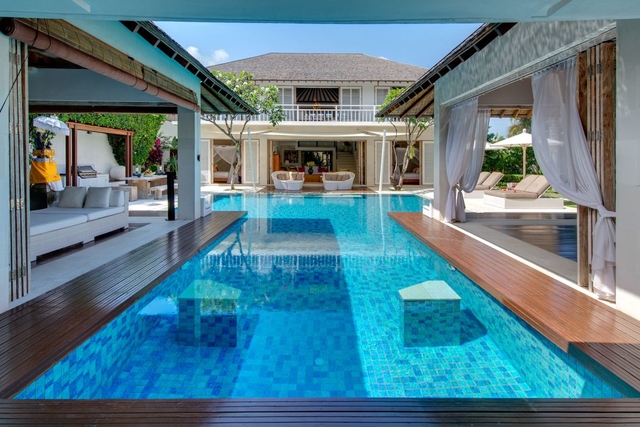
Q: Are there recommendations for investors with relatively small
budgets, say up to $100,000?
For investors with up to $100,000, it's crucial to find a rental
property with strong potential, something that stands out.
Consider it like buying an existing business, such as a café. If that
café struggled to attract customers previously, ask yourself: "Why would
customers come now under new ownership?"
Many cafés open and close because they lack a unique concept. Simply
renting a space, adding a few tables and a kitchen isn't enough.
To succeed, you'll need to transform the café—change its style, its
concept, rethink how you promote it. If you're seeking purely passive income,
this might not suffice. But if you're willing to nurture the place, enhance its
beauty, and craft a compelling narrative around it, success is achievable.
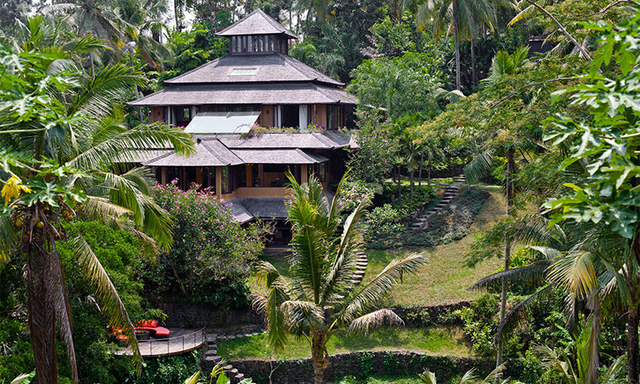
BL: What about if the budget is up to $300,000?
With a starting capital of up to $300,000, consider opting for long-term
leasing arrangements spanning 5, 10, or even 15 years.
Ensure you allocate funds for repairs, interior updates, purchasing
furnishings, and investments in promotional materials like photos, videos, and
a website.
Plan for the initial 3 months for necessary repairs and setup, followed by a
focused promotional period.
Within a year, you can anticipate a solid return on your initial investment.
For long-term ownership or leasing, it's crucial to factor in depreciation.
Bali's high humidity and strong sun accelerate wear and tear on houses,
furniture, and accessories, necessitating frequent replacements or repairs.
Whether renting or buying, assess the technical condition of the
property—look for cracks, leaks, and structural integrity to avoid unexpected
costs that could erode your profits. Don't rely solely on promises from sellers
to fix everything; often, they may only conceal issues superficially.
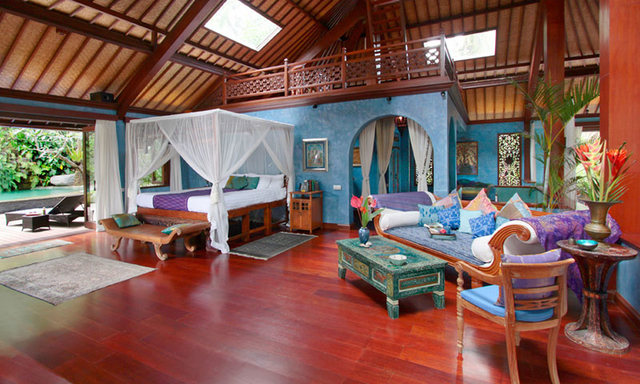
BL: Does this mean that the minimum amount required to invest in real
estate in Bali is $300,000?
It's possible to find options even starting at $50,000, but be prepared to
invest time in your search. Depending on your luck, you might spend the next 6
months looking for the right property—or find it the very next day.
You can come across properties renting for around $15,000 per year. If you
plan to use it for business, expect to pay several years in advance to secure
the price.
For instance, renting for 3 years would total $45,000, plus an additional
$5,000 to $10,000 for repairs, making the initial investment around $50,000 to
$60,000.
However, operating under these circumstances may not comply with legal
business requirements. Launching a legitimate property business with this
amount could prove challenging.
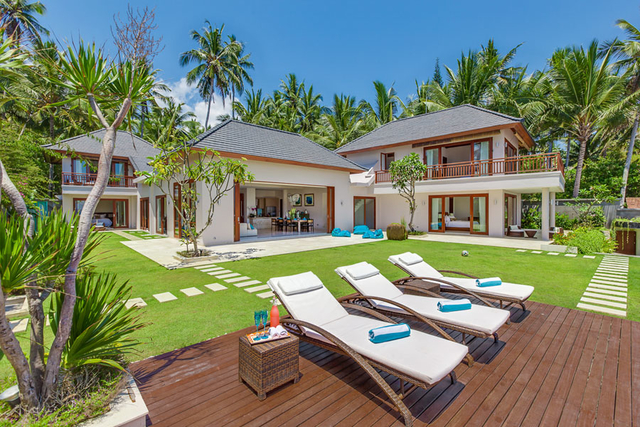
BL: What about luxury real estate?
Investing in expensive real estate often prioritizes capital preservation
over immediate income. The goal is to safeguard your investment against risks
like fire while expecting long-term appreciation in property value.
Land prices, particularly, continue to rise steadily. Therefore,
purchasing more land with a smaller house tends to be more advantageous than
the reverse.
Luxury villas typically offer a return of about 3-5%, which can be
considered satisfactory. However, this isn't guaranteed.
Buying an expensive villa can be justified if it's for personal
enjoyment, with plans to use it for 2-3 months annually, hosting family and
friends. A well-managed villa can be rented out during the rest of the year,
covering maintenance costs and potentially yielding a modest profit—around
2-5%. In exceptional cases, properties in prime locations like above Balangan
Beach, Seminyak Beach, or Batu Bolong's center may achieve up to 7% returns,
though these are high-end and costly options.
In summary, purchasing a villa for personal use, renting it out through
a management company, and leveraging it for occasional income makes financial
sense. Rental proceeds can cover upkeep, utilities, and possibly depreciation,
while you and your loved ones benefit from substantial savings compared to
hotel stays or renting similar properties.
Remember, savings accrued are akin to earnings!
Additionally, if you decide to sell, you can expect to recoup your
investment with accrued appreciation. However, luxury property markets
typically have low liquidity, making quick sales less feasible.
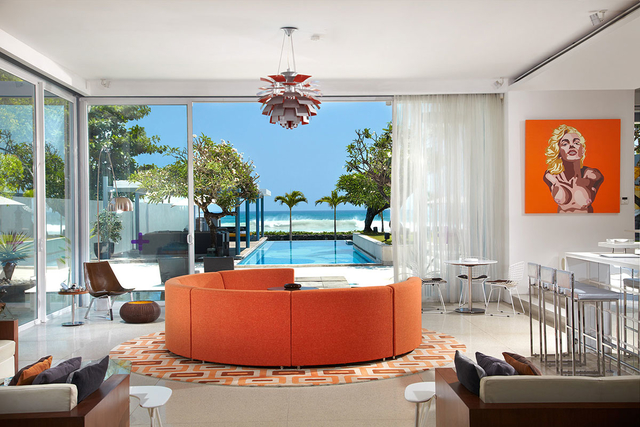
BL: What are the legal requirements for operating a rental
business? Which documents are necessary, and how should they be prepared to
ensure compliance?
In Indonesia, like any country, operating legally and earning income involves
adhering to specific laws and requirements.
The comprehensive process of business legalization includes:
- Establishing a PT PMA company, which is a company with foreign
capital,
- Securing a work permit (KITAS) for a foreign manager who will oversee
the villa operations, welcome guests, hire staff, handle payroll, and manage
guest payments,
- Officially hiring employees with insurance contributions (BPJS) and
tax identification numbers (NPWP). Tax contributions amount to approximately
15-17% of salaries. The minimum wage in southern Bali is just under 3 million
IDR per month and is regularly adjusted by local authorities. Employers are
also required to provide a 13th-month salary, the so-called religious bonus,
- Obtaining a tax identification number (NPWP),
- Filing tax reports and paying taxes, including a local tax of 10%
(similar to VAT) and a federal tax of 1% on turnover,
- Ensuring the property has a valid building permit (IMB),
- Acquiring a tourist accommodation license (Pondok Wisata) for the
property.
A simpler approach to legalizing rental property is hiring a property
manager you trust. Sublease your property to this manager, who will handle the
Pondok Wisata license, NPWP registration, and receive payments on your behalf
into a local IDR account. You will manage tax reporting, both local and federal.
It's important to recognize that such a manager becomes both a friend
and a business partner. This relationship requires patience, willingness to
teach and guide, and the ability to calmly address challenges.
Avoid using force or aggression in business dealings with Indonesians.
Building mutual respect fosters long-term loyalty, though terminating an
employee who has worked for over 2 years requires substantial compensation.
To transfer income out of Indonesia legally, foreigners must pay a 20%
withholding tax. However, without direct oversight tools, tax authorities may
not monitor this unless explicitly stated in your transaction descriptions.
Banks may flag such transactions, prompting inquiries.
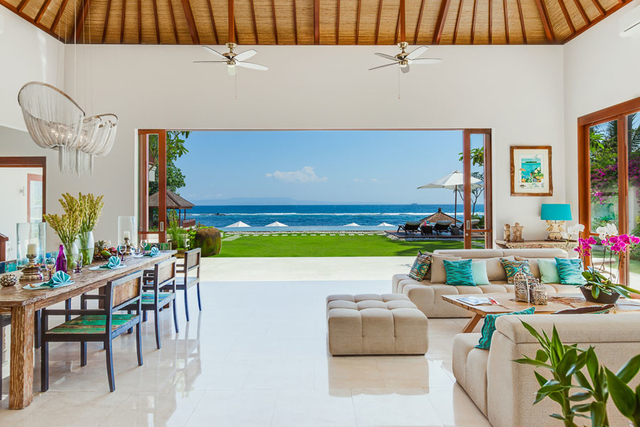
BL: Can one rent out their property occasionally, avoiding the need
to set up a formal business?
If you intend to sporadically rent out your property under the radar, hoping
not to attract attention, be cautious—raids do occur, especially if you have
envious neighbors.
Treating rental as a serious business venture
involves brand creation and proper legalization.
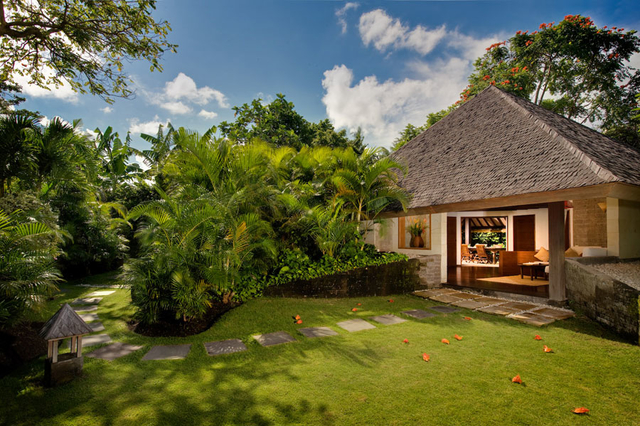
BL: Which areas in Bali show the most promise for investment?
Traditional hotspots like Seminyak, Uluwatu, and Canggu remain popular.
Alternatively, exploring more exotic locales is also an option.
Predicting upcoming areas in Bali is challenging, but uniqueness always
attracts interest.
Accessibility is key in Bali. Properties near major attractions or
transportation routes tend to fare well.
For instance, the cliffs along Pandawa Beach may see increased interest once
a highway connects Nusa Dua and Pandawa, potentially sparking a boom despite
already high prices.
The market is expanding towards Tabanan and northwest areas, though major
breakthroughs have yet to be seen.
Canggu continues to present
opportunities, and neighboring Pererenan also shows potential, despite its
current lack of infrastructure.

BL: What factors have fueled the rapid development of
Canggu and Batu Bolong in Bali, and can we anticipate similar trends in other
areas?
For Canggu and Batu Bolong in particular, it were the surfers!
Seeking quieter alternatives to Seminyak, they migrated to Canggu. This influx
sparked the need for infrastructure, prompting the rise of cafes. As more
surfers arrived, more cafes followed suit.
In no time, Canggu transformed into the bustling hub it is
today.
Beyond Canggu, popular surf spots are scarce, with Balian
being the only notable exception, albeit quite distant.
The east coast lacks developed infrastructure and hasn't
seen significant growth prospects.
From a surfing perspective, current spots in Bali are
overcrowded, prompting surfers to explore other islands like southern Lombok,
Sumbawa, Rote, and Sumba.
Up north in Bali, plans for a new airport have stirred
market speculation. Initially, airport rumors boosted market hype, only to
subside as reality set in.
Future developments in the north will be intriguing to
watch. Many European buyers are eyeing this region for an authentic Bali
experience, away from the bustling scenes of Canggu and Seminyak.
Despite lacking surf appeal, the north offers tranquil seas,
ideal for family swimming and boasting coral reefs. Picturesque hills and
striking grey volcanic sand beaches add to its allure.
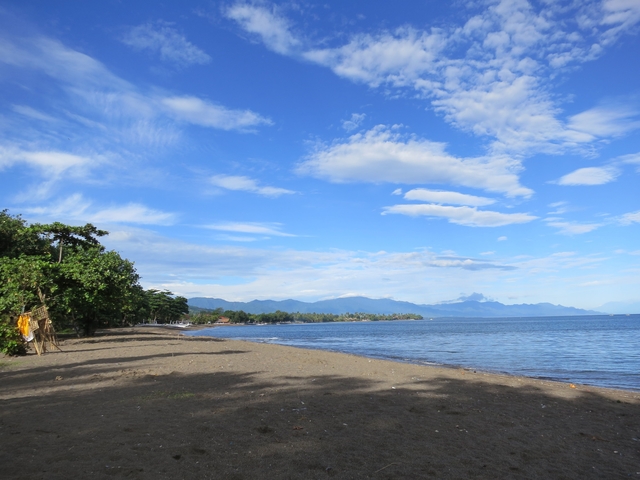
Massive northward development could oversaturate the market,
potentially lowering property prices. Therefore, unique property characteristics
become pivotal in such a setting.
Ubud continues to attract growing interest, but competition
is fierce. Uniqueness is key to standing out in the saturated under-$100 per
night market flooded with generic Bali-villas.
In South Bali, prices are already steep, reflecting its
established popularity.
For those eyeing Bali for passive income, be prepared for an
intensive six-month property search. There's no room for complacency; listing
any house on Airbnb and expecting immediate bookings simply doesn't pan out.
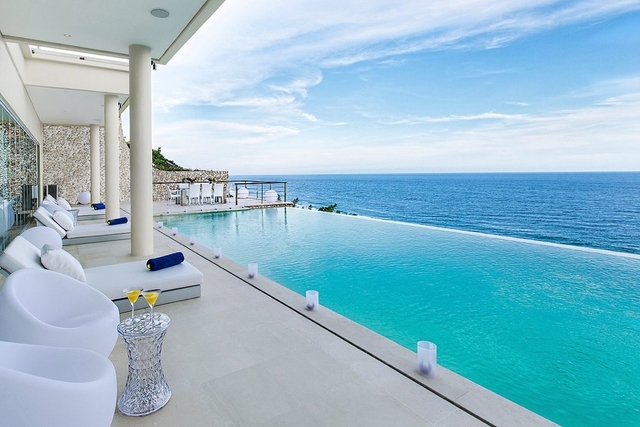
BL: Are there any significant areas in Bali that remain untouched by
development but could become attractive in the coming years?
Bali's iconic tourist spots like Kintamani, holy springs, cliffside Uluwatu
Temple, Tanah Lot, volcanoes, and rice terraces are well-established draws for
tourists.
In Candidasa, beachfront villas like Tirta Nila Beach House and Villa Na
Bali operate at about 90% occupancy. We personally launched and built these
villas, and sold the business afterward.
Unfortunately, prime beachfront land in Candidasa is fully developed. Any
future growth would likely occur inland, away from ocean views due to the
area's steep coastline, simply because Candidasa boasts decent infrastructure.
Traveling to Amed remains inconvenient due to its distance from main routes,
and concerns persist regarding its proximity to the volcano, particularly
following past eruptions.
Many tourists still shy away from Lombok following the earthquake, not out
of fear of a recurrence but to avoid witnessing the aftermath and others'
hardships. Media coverage vividly portrayed the devastation in Lombok,
impacting visitor perceptions.
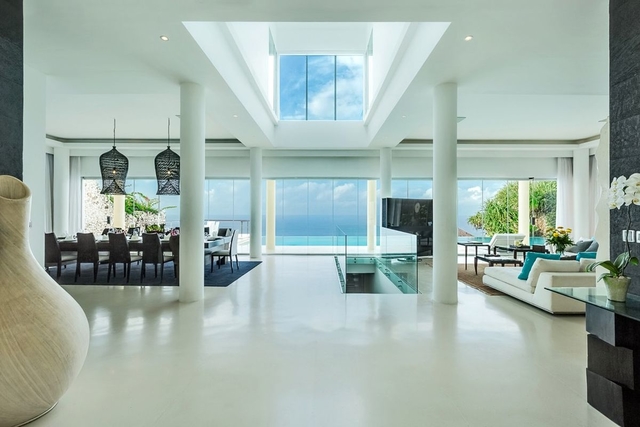
BL: What are the distinctive features of the real estate market in
Indonesia?
The Indonesian real estate market differs significantly from Cambodia,
Vietnam, or Thailand, particularly in its reliance on local tourism. During a
recent property visit to Thailand, I found local vacationers were virtually
nonexistent.
In contrast, Indonesia's economy continues to grow steadily. With a
population of approximately 240 million and an expanding middle class, the
country offers substantial opportunities. Many Indonesian resorts attract
60-70% of their visitors from domestic tourism, driven by economic growth in
major cities like Surabaya and Jakarta, as well as smaller cities such as
Yogyakarta, Medan, Balikpapan, and Kupang. The growing middle class
increasingly seeks unique vacation experiences.
Local Indonesian tourists are enthusiastic explorers of their own country,
often drawn to distinctive destinations. The pervasive influence of Instagram
culture means unique ideas can quickly gain popularity among local travelers.
To succeed, your marketing strategy should prioritize targeting the local
market.
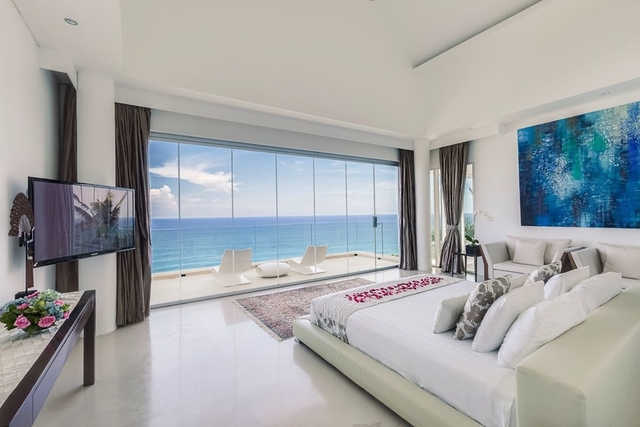
BL: What do you mean when you speak of a unique idea?
When I refer to a " unique idea,"
I mean a concept that catches attention, especially on platforms like
Instagram. Your property doesn't need extravagant architecture or expensive
interiors, but it must be visually appealing. In today's digital age, being on
Instagram means you'll eventually be noticed.
Take Hideout, for example. It didn't gain fame overnight; it took
about 2-3 years for its popularity to explode in the last year and a half. This
growth was fueled by accumulated energy and word-of-mouth.
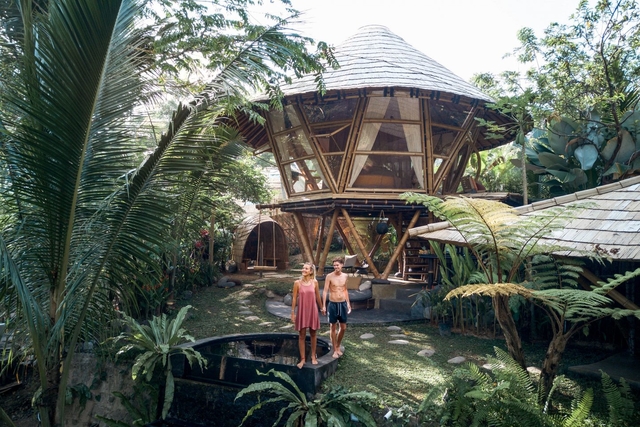
Launching a place with a unique concept and character requires patience,
resources, investment, and a commitment to maintaining excellence until the
project gains traction.
Typically, it takes 6 to 9 months, sometimes up to 12 to 18 months or
longer for more unconventional projects, to establish a property and build its
reputation. However, this effort sets the stage for long-term success.
Focus on creating an experience that makes guests feel good, beautiful,
comfortable, and at ease.
Consider Zen Hideaway, renowned for its swings over a canyon, which
sparked a trend later replicated elsewhere.

La Joya above Balangan Beach gained
fame for its stunning ocean-view pool. Bambu Indah in Ubud stands out with its
ethnic style and use of natural materials.
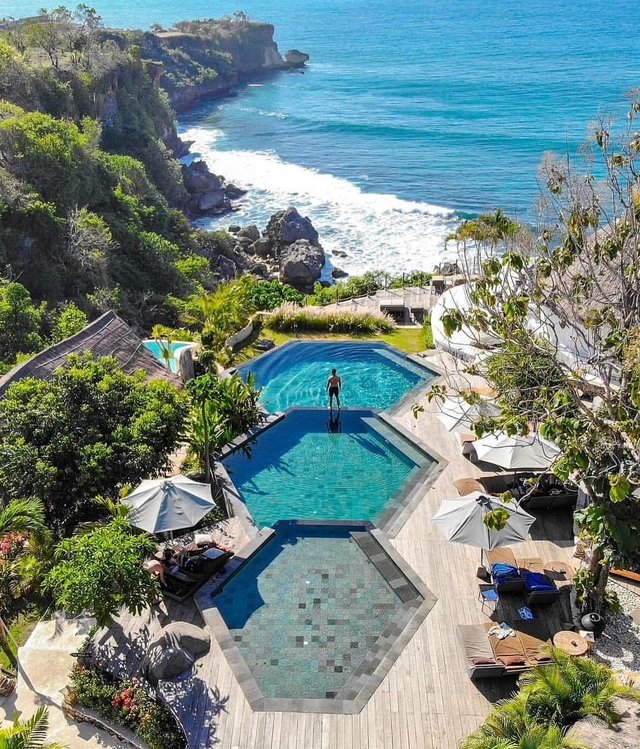
Building a strong reputation is key. Aim for excellent reviews on
platforms like Airbnb or a rating above nine on Booking.com to enhance your
property's popularity.

BL: Why have eco-friendly projects, especially bamboo
buildings or those incorporating bamboo, become so popular in Bali?
They're slightly cheaper to build compared to traditional materials. Lower
construction costs mean lower accommodation prices. If Hideout's rates were
twice as high, tourists might not have visited.
Finding the right price point through experimentation is crucial.
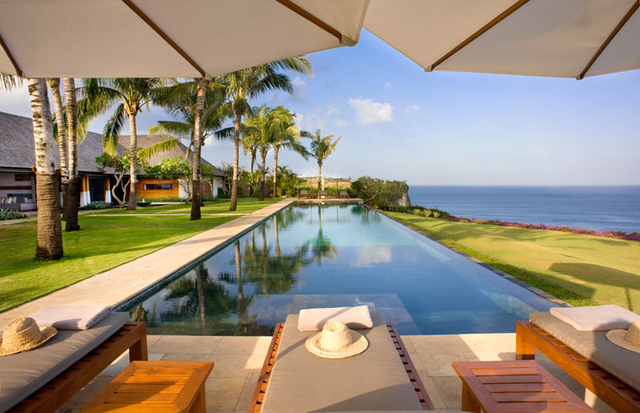
BL: Where is the most expensive land in Bali right now?
Surprisingly, Denpasar, the island's administrative and financial hub,
commands the highest prices. In tourist areas, Seminyak and Batubelig range
from 1.5 to 2 billion IDR per are. Uluwatu's cliffside land costs about 1.2
billion IDR per are.
However, Uluwatu requires caution; not all areas are suitable for
construction. Some lands may be too close to the Uluwatu temple.
There's a regulation prohibiting construction within a 5-kilometer radius of
Uluwatu temple, often circumvented with unclear consequences. Illegal
constructions there are currently overlooked but could face changes in the
future.
Recently, an article highlighted the Indonesian central government's
concerns about disorder in real estate nationwide. Some investors flout rules,
assuming no repercussions, though discussions in Jakarta suggest this issue
will be addressed eventually.
A growing number of investors adhere strictly to
laws, disapproving of rule evasion.
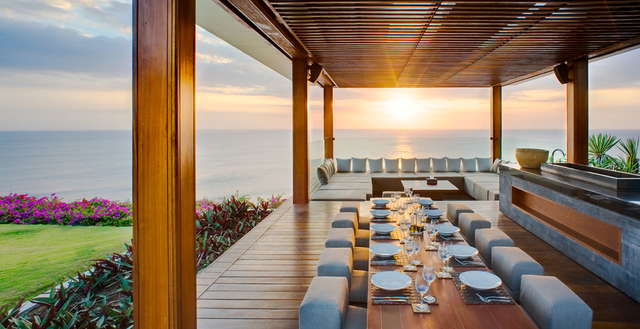
BL: What are the current options for land ownership in Bali?
There are three main types available to foreigners:
1. Leasehold:
Long-term lease of the land, with
options for extensions totaling up to 75+ years.

2. Hak Pakai:
Translated as "Right to
Use," granted to foreigners residing permanently in Indonesia with a KITAS
permit. It lasts for up to 80 years, also extendable.
- Agencies like Bali Business
Consulting can assist in obtaining KITAS, or you can establish a company for
this purpose.
- Hak Pakai rights are
inheritable and can be converted to full ownership (Hak Milik) if sold to an
Indonesian.
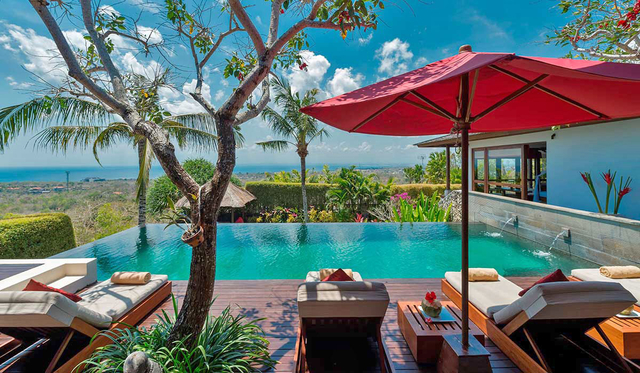
3. Hak Guna Bangunan (HGB):
This option, translating to
"Right to Build’, is reserved for companies. Land must be used within 25
years if acquired through a company, with extensions up to 80 years total.
- Verification by the
government ensures the land is used for its intended purpose during each
extension.
- Major hotels often use HGB.
Foreigners can establish a PT PMA company with foreign ownership, enabling
property purchase or lease.
These options cater to various needs and legal frameworks in Bali's real
estate market.
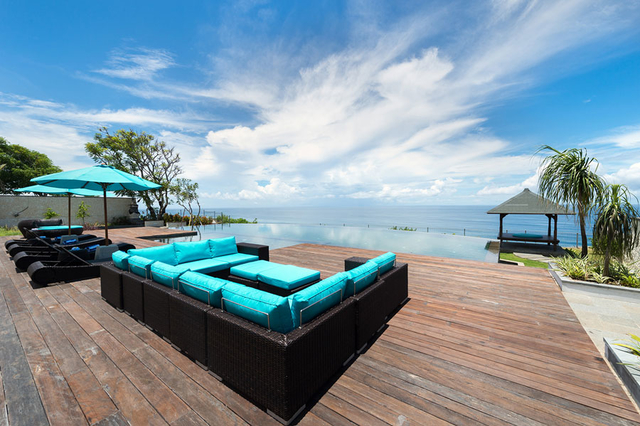
BL:
Is it advisable to use a real estate agency to process a long-term lease
transaction?
Yes, it is advisable. This recommendation is based on agencies' thorough
document checks, ensuring proper handling. They help prevent common issues like
dual certificates and unauthorized sales among family members.
Additionally, a reputable agency provides independent property assessments,
evaluating aspects such as land value, construction area, and commercial
potential.
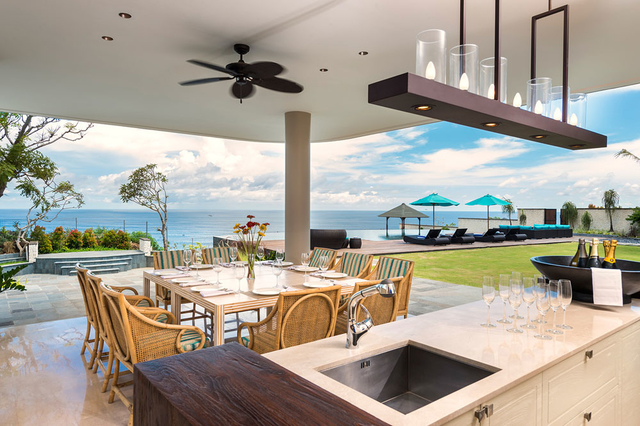
BL: What are the typical challenges encountered during
property document processing?
One frequent issue arises when transactions proceed without the consent of
all family members. While legally owned by one person, many Balinese lands are
traditionally considered family property. For example, even if one person signs,
approval from four or five siblings may be necessary for a sale.
If any family member opposes, the deal may be canceled or become
contentious, impacting your business. Resolving such disputes typically
involves extra costs.
Another common problem is the failure to verify land status during a
sale—whether it's agricultural land unsuitable for development or too costly to
convert. Converting green zone land to residential use involves additional
expenses and long-term risks.
There are also cases of deals conducted through unscrupulous notaries.
Additionally, promised road access to purchased land may not materialize due
to inadequate agreements with the landowner.
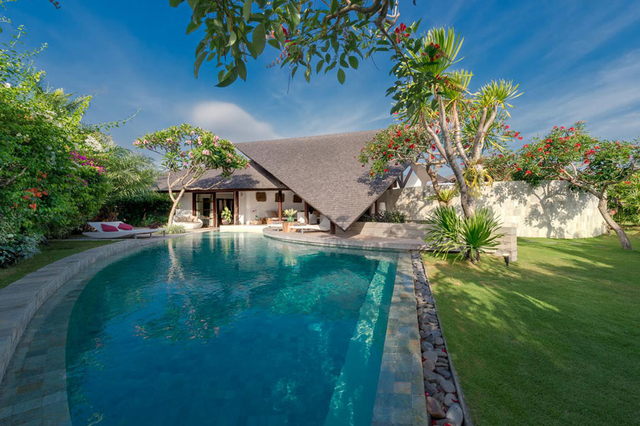
BL: Have Indonesia's rules on lease and land acquisition
improved recently?
Lease terms have been extended, now allowing leases of up to 100 years.
Previously, leases were for 50 years with extensions of 25, 30, or 50 years.
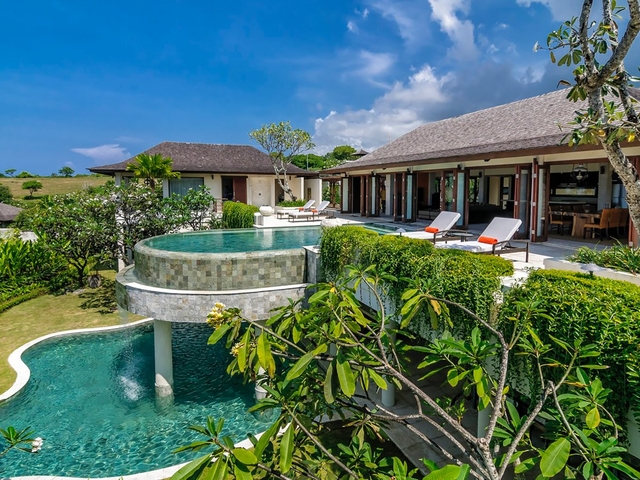
BL: Are there any issues with extending lease terms? Can
terms go unextended?
When extending your lease, you have a right of first offer as guaranteed by
your contract. The owner will make an offer which you can negotiate. They are
obligated to wait for your response.
If you choose not to extend the lease, the owner will seek another tenant.
Once your lease ends without extension, you will lose the property.
It's advisable to initiate the extension process 3-5 years in advance to
negotiate terms, including price.
In remote areas like Tabanan, for a 25-year lease, you can negotiate the
extension cost based on commodities like rice, historically significant in
Bali.
The ability to fix prices may vary depending on the owner and their family's
preferences.
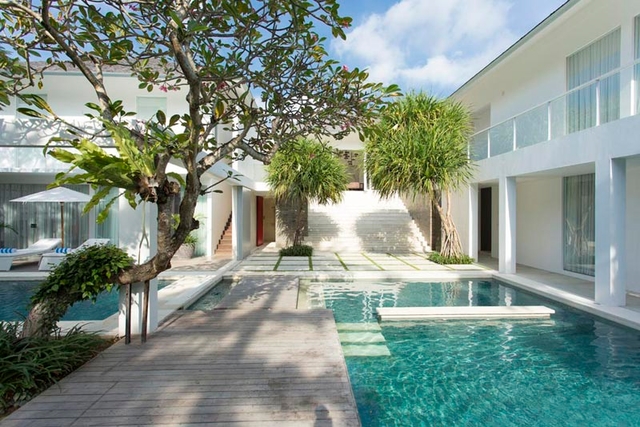
BL:
Is it advisable to use intermediaries for renting out your property?
You have two options for renting out your property. Firstly, you can hire a
trustworthy Indonesian manager who handles everything—payments, invoices, and
registrations in their name.
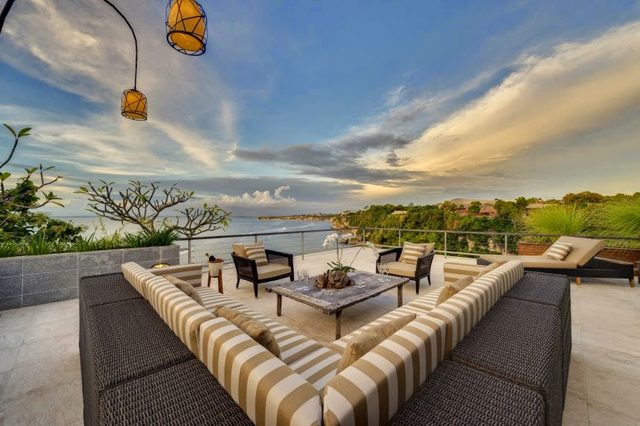
If you lack a trusted person, several management companies in Bali
specialize in marketing, placement, and price management. One recommended
option is Farsight 24, which helps owners maintain control while hosting
tourists.
For larger companies like Elite Heavens or Bali Luxury Villas, your villa must
be valued at least a million dollars. These companies excel in managing unique
or exceptional properties—places with distinctive architecture, villa design,
quality amenities like tableware, linens, towels, trained staff, etc.
A reputable management company is ideal for villa owners who view their
property as both a personal retreat and a rental opportunity for guests,
family, and business partners. Renting out the villa when not in use not only
generates income but also offsets costs, effectively providing a return on
investment.
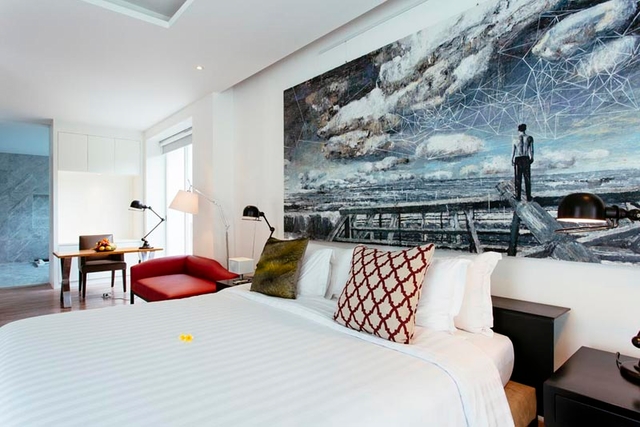
BL: What about investing in property on other islands
like Lombok or Sumbawa?
Lombok shows promise, but it encounters challenges with local market
preferences. Apart from the Hindu-majority areas in the west of the island,
Lombok's tourist appeal primarily caters to the Arab market.
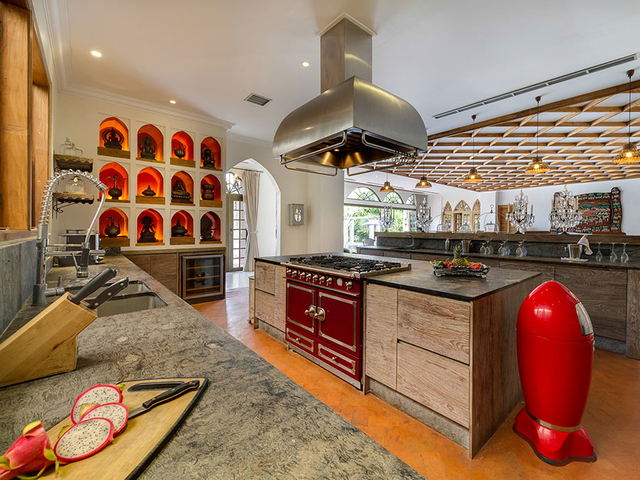
While this market is substantial, the ability of Arab tourists to fully
occupy all of Lombok's hotels remains uncertain. Moreover, Arab tourists
already have established destinations like Dubai and their own coastal
attractions, which somewhat diminishes Indonesia's appeal. Other potential
markets for Lombok include Indonesia, Malaysia, Pakistan, and Central Asia.
My concern here is the lack of appeal to a wider international tourism.
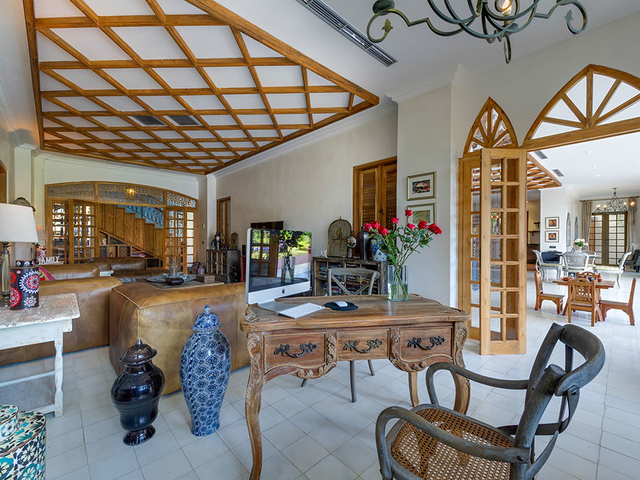
In contrast, Sumbawa offers a more appealing culture and lifestyle for a
range of international visitors.
BL: What makes Sumba attractive for real estate investment?
Sumba is a unique island: predominantly Christian, it is known for its
seismic stability as it does not have any volcanoes.
Currently, extensive road construction is underway across Sumba,
including a ring road connecting all regions.
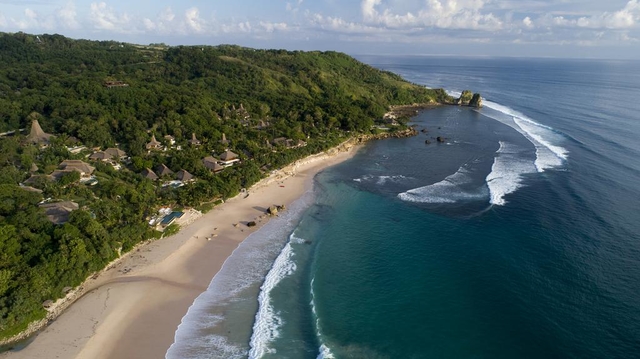
Home to the renowned Nihi Sumba resort and the Sumba Hospitality
Foundation, the island boasts a skilled local workforce in hospitality.
Sumba offers surfing, boasts two airports, and preserves ancient local
cultures alongside Christianity. These elements appeal to photographers and
videographers, thereby attracting tourism to the island.
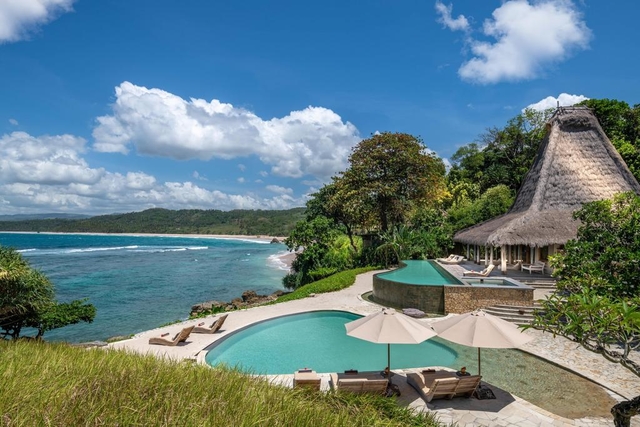
Land prices in Sumba are still reasonable compared to Bali—a hectare
costs as much as a hundred square meters in Bali, presenting significant
investment potential over time.
Buying large plots allows for strategic development—subdividing,
planning roads, and common areas can attract future buyers as infrastructure
develops.

Infrastructure in Sumba is still developing, particularly in Southern
Sumba where dining and entertainment options outside of resorts are limited.
However, investing now could secure a stake in future developments.
Nihi Sumba, known for its luxury offerings, operates at high occupancy
rates, demonstrating the island's appeal to global guests. Creating more
affordable alternatives could further attract interest.
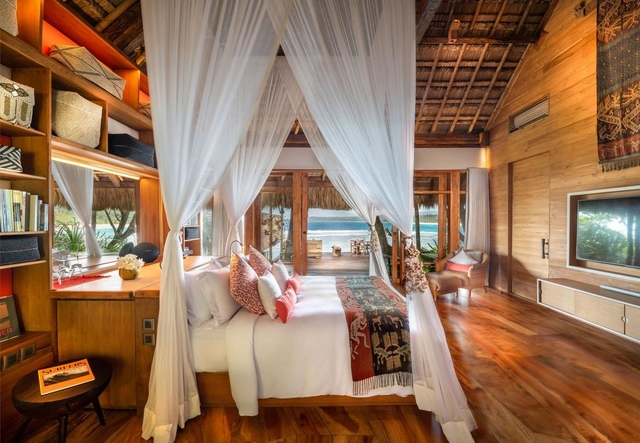
For example, we recently launched a HARCOURTS PURBA office in Sumba,
focusing on real estate sales to capitalize on these opportunities.

Another interesting place is Flores —investors have bought up land
around Labuan Bajo port, driving prices sky-high. A new international cruise
terminal under construction promises further development, attracting tourists
from Australia and New Zealand.
BL: What
trends have you observed in Bali's real estate and land prices recently?
Land prices
have definitely been rising. Over the past decade, prices in Bukit have
increased sixfold, with even sharper rises in areas like Canggu. A notable
factor driving this upward trend is the demand for unique and sustainable
tourism experiences.
If you're
considering investing, it's essential to align your goals with market trends.
Eco-tourism is gaining momentum, with sustainability becoming a key
consideration for travelers.
For
personal use, buying a villa in Bali to enjoy with family and friends is a
rewarding choice. However, if you aim to turn it into a business, understanding
market trends and identifying niche opportunities is crucial. Ensure your
business model aligns with evolving consumer preferences and adds value to the
local or international community.

Before
making a purchase, spend time in Bali to familiarize yourself with different
areas. Renting properties in various locations will give you firsthand
experience and insights into the market dynamics.
When
evaluating potential investments, consider the existing infrastructure, nearby
attractions, and rental market trends. Research nearby listings on platforms
like Airbnb to gauge rental prices and demand.
Taking
these steps will help you make informed decisions and maximize the potential of
your investment in Bali.
For expert
advice on real estate investment in Bali, consider consulting trusted
professionals, like Villa in Bali: +62 81 7000 5777 (WhatsApp / Telegram)

You can add one right now!